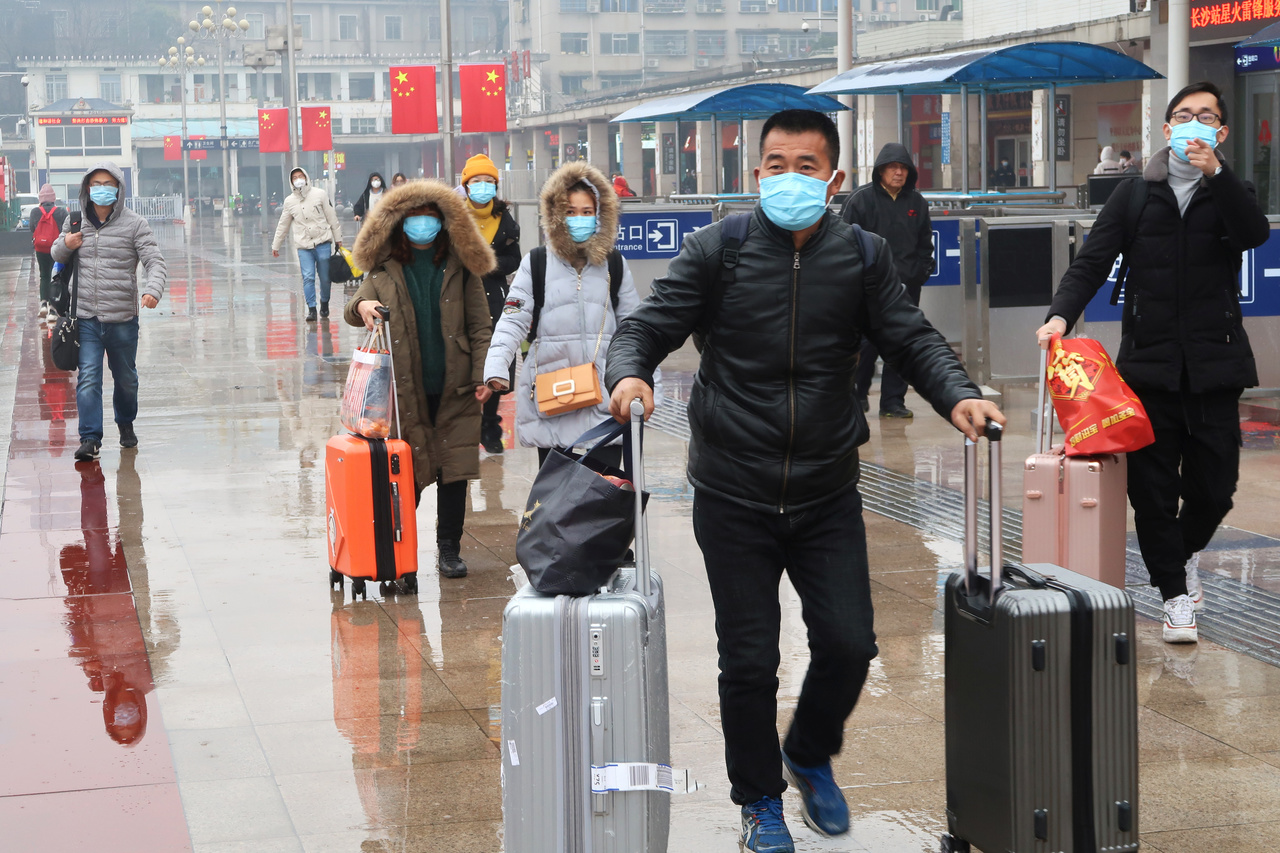Residents fret as China's Wuhan virus exclusion zone widens
Sign up now: Get insights on Asia's fast-moving developments

Passengers wearing masks are seen at the Changsha Railway Station, in Hunan province, China, on Jan 25, 2020.
PHOTO: REUTERS
CHANGSHA, CHINA (REUTERS) - Walking through the drizzle outside the railway station in the city of Changsha on Chinese New Year, local residents said it was only a matter of time before they became part of a lockdown aimed at containing China's most lethal new contagious disease since 2003.
Changsha, home to 7 million people, remains on the outside of an ever-widening exclusion zone in central China as local governments try to stop the spread of a flu-like contagious disease that originated in the city of Wuhan about 355km away and has already killed 42 people.
More than 10 cities in Hubei province have already been shut down, and local residents in neighbouring Hunan - the home province of Mao Zedong - said they were resigned to the possibility that they would also be sealed off in the next few days.
"My first concern is for myself. I'm worried that the virus may infect me. I'm also worried about people in Hubei," said Wang Junnan, a 23-year-old aviation safety officer from the city of Zhuzhou, about an hour from Changsha.
Nearly all cities in Hubei to the north cut transport links over the past two days after the provincial capital Wuhan, a city of 11 million where the outbreak started, imposed a lock-down.
"There isn't much I can do. All I can do is have the mask on whenever I can," Wang said. "You can hardly find masks to buy at this moment."
One pharmacy nearby had almost sold out, with the shop assistant saying they only had one "cheaper, less effective" mask left.
More than 1,300 people have been confirmed to be infected with the coronavirus, traced to a Wuhan seafood market illegally selling wildlife. The vast majority of cases have been in Hubei province.
Reuters journalists were briefly stuck in the city of Xianning, which neighbours Wuhan, when the city closed transport links on Friday night, the eve of the Chinese New Year. The departures board at the city's railway station was blank, the ticket kiosk staffed by two women who said they could not sell tickets.
But local authorities in Hubei and neighbouring Hunan do not yet appear to have developed a properly coordinated response to the crisis, with most cities choosing to try to seal their borders at all costs.
Xianning police urged Reuters journalists to head south to the city of Yueyang, which lies across the provincial border in Hunan, but Yueyang was sealed off by another police roadblock and dozens of cars trying to leave Hubei province were also forced to turn back.
However, in the early hours of Saturday morning (Jan 25), the route into Changsha, another 200km south, remained unblocked.
Residents said they expected tougher measures soon, as cities, transportation operators and businesses across China extended closures aimed at curbing the spread of the virus.
"I saw in the newspaper that someone was caught earlier today trying to leave Hubei and get to Hunan using the Didi application and they should be arrested," said Wang.
"These measures are difficult, but they are necessary," said Wang.
Hotel staff in Changsha also told Reuters they had received instructions not to allow anyone from Hubei province to book rooms.
Peng Aihua, a 71-year old Buddhist nun walking outside Changsha train station, remained phlegmatic, even though the disease has spread panic through the country.
"Why would death scare me?" she said. "I haven't reached my time to die yet."


